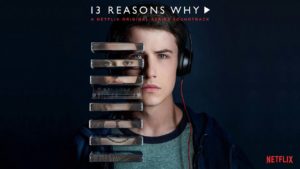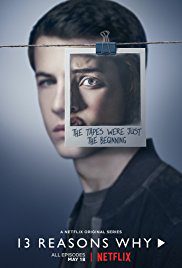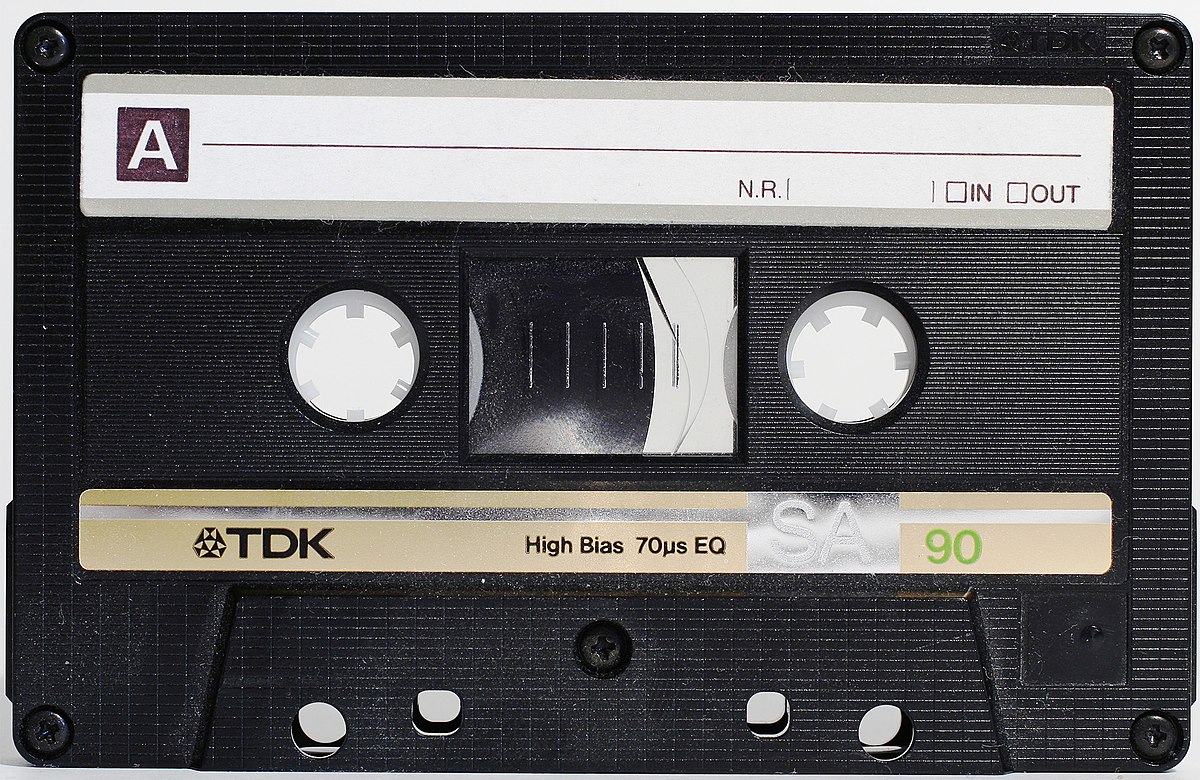Important Author’s Note: This article contains references to rape, suicide, and self-harm. If any of those topics are particularly disturbing to you, please proceed with caution. This article is based completely upon the first season of the TV show. I have not read the book or watched the second season. However, there will be small spoilers regarding the first season.


If you had asked me this time last year what my favorite TV show was, I would have replied, without a second thought, “13 Reasons Why!” My reasoning for liking the show was simple: it was popular. I fell in love with the characters and their development throughout the season, how there was a plot twist around every corner. Honestly, I liked it because it was edgy and cool, I could not see the flaws at the time. Sure, parts of it made me uncomfortable, but I didn’t think anything of them. The purpose behind the show was admirable, it shed light on topics usually shoved under the rug. Looking back on it now, however, I now realize that the messages conveyed were not positive ones at all, and that it caused more problems than it solved.
For those who aren’t familiar, 13 Reasons Why is about the suicide of high school student Hannah Baker. After her untimely death, a series of cassettes are discovered that reveals the reasoning behind her decision. Each tape contains a new story and blames a new person. A list of thirteen reasons is given, including trespasses ranging from crude rumors to rape. Clay, the main character, is shown listening to each tape, learning a new secret each time he does. The show switches between present time and flashbacks of Hannah’s life, so viewers get the full, unedited story. The intention behind the show was to raise suicide awareness and to express the lasting effects of bullying. Unfortunately, Netflix completely failed to send those messages and ended up romanticizing dark subjects.
My main issue with the show is its glamorization of suicide and depression. The biggest contributor to this matter is Clay’s infatuation with Hannah. The bad things going on in her life portray her as mysterious and intriguing. They play a major role in her being attractive to him. Because she has deep thoughts, because she writes sad poetry, and because she is “not like other girls,” Clay falls head over heels for her. She is a beautiful girl with a dark past, what’s not to love? The problem is, Hannah, being “not like other girls” was caused by her depression and it should have been shown differently. People who suffer from depression don’t become dream girls, they stop caring. People who plan on committing suicide don’t seek revenge on those who wronged them, which is exactly the purpose the tapes serve. People who want serious help tell someone they trust, they don’t vaguely consult their school counselor. The truth behind depression was hidden, because it’s not attractive or admirable. Because, if Hannah showed actual symptoms of illness, she would not have the same appeal. She wouldn’t go to big parties or dances; in fact, she would be lucky if she could leave her bed. Mental illnesses are not alluring, they are serious, life-damaging matters. If Netflix really wanted to open the public’s eyes about these problems, they should have started with an authentic depiction. Including a love interest was obviously much more important than accurately expressing suffering. Suicide is expressed as a reasonable response to hardships. Hannah is meant to be a commendable character. Viewers are supposed to look up to her, because she is portrayed as a smart, honest girl. They are meant to sympathize for her, she was abused after all. Unfortunately, this makes it look like suicide is a decision that wise, practical people make when faced with difficulties.


Clay just can’t seem to get enough of these sad girl stereotypes, though. One specific scene along these same lines made me very upset. Skye, a peer of Clay’s and barista at a local coffee shop, is serving Clay a drink one day after school. Skye is one of the few cool, likable characters. She’s unafraid to be herself and honestly expresses her views. However, she was just too good to be true. When her sleeve rolls up, Clay notices fresh-looking slashes on her wrists. It is clear that she has been cutting, a form a self-harm. When he asks her about it, she says, “It’s what you do instead of killing yourself.” This quote is the perfect example of the romanticization of depression and suicide in this show. Not only do characters condone self-harm, they praise themselves for it. This scene was meant to make her appear strong, for her to transform into this troubled, amazing girl. In all honesty, it was probably a setup for Clay’s next romance. The problem is, self-harm is not the only alternative to suicide. In fact, it should not even be viewed as a viable option. It is an incredibly unhealthy practice, both physically and emotionally. It is dangerous and can lead to potentially life-threatening situations. People who cut don’t do it to make themselves feel strong, they do it because they feel weak. Netflix had a great character with Skye, but they just had to ruin her.
Another big problem with the series is the rape. Onscreen rape scenes are, by definition, bound to be problematic. People don’t like watching them, actors don’t like performing them, and they are always met with backlash. This one was particularly bad, mostly because of what happened after the matter. After she is abused, Hannah doesn’t tell anyone what has happened to her, which teaches victims that silence is the right option. It sends messages that rape is not something to be countered, that it’s not worth reporting, that rapists can get away with their actions. It says, rape is not a big deal. Again, Hannah reacts the way she does because she’s “depressed” and doesn’t want to bother others. Depression doesn’t destroy your moral compass: another example of the misinterpretation of mental illnesses. Another issue with Hannah’s rape scene is the lack of struggle. Although I understand that she is physically small in comparison to her attacker and that her chances of overtaking him are slim to nonexistent, there is practically no attempt at escape. She just allows herself to be taken advantage of, which only adds to the message that rape is normal and that victims shouldn’t stand up for themselves. Again, her shock was understandable, but her strife was wrongfully minimized.


Hannah tends to remain silent about the majority of her problems, actually. When she sees a friend being raped while unconscious, she does nothing until after her death. When she is stalked, she doesn’t report the crime or approach her offender. When she is raped and sexually assaulted, on several occasions, she doesn’t press charges or tell an adult. These factors all transfer the message that being silent is the best option. In reality, being silent is the worst thing you can do in her situation. It is extremely important that crimes get disclosed; otherwise, the accused will continue to terrorize others. In the final episode, Hannah decides to talk with a school counselor, Mr. Porter. Their talk is interrupted several times by telephone calls for Mr. Porter, and it is clear he isn’t really processing what she says. When she discloses she was raped, he shrugs his shoulders and says she needs to move on because she won’t tell him who it was. Again, her silence is harmful to her, but is used to make her look “mysterious.” I think this is definitely the wrong theme to be presenting. His inattentiveness makes all authority figures seem incapable and uninterested. In actuality, there are always people who are willing to help, and no one is likely to brush off an accusation as serious as rape. Impressionable teens watching the show get the idea that adults are just stupid drones, when they are actually great resources and will almost always try to be of assistance.
Finally, I would like to discuss Hannah’s infamous suicide scene. To summarize, it is brutal and gruesome. Hannah Baker steals a set of razor blades from her parent’s general store, steps into her bathtub, and slits her wrists. Please keep in mind, none of it was censored. None. A shot focuses on her bleeding forearm while another image exhibits her wince. Her groans and sobs are as clear as day. The scene is absolutely appalling, and I don’t believe it added anything to the story. The purpose behind the show was to raise suicide awareness. Couldn’t that have been accomplished without subjecting viewers to such a vile scene? Personally, I would have gotten the same message if they had just hinted at her death. If you must, show her take the blades and close the door. Show her body being discovered, but leave the gory details out of it. Watching a teenager die in such a terrible way is disturbing and crosses a moral line. Mostly, it was her method. Cutting the wrists is a very graphic picture. In the book, which the show was based off, Hannah overdoses on pills, and even that was just barely mentioned. The scene was only added for shock value, and it wasn’t worth the controversy. It was pointless and did nothing to enhance the storyline except make viewers sick.


13 Reasons Why was created with good intent. It was meant to raise suicide awareness and show people the lasting effects of bullying. Both of those subjects are incredibly important, especially in today’s society. However, I strongly disagree with the way Netflix portrayed mental illnesses and assault. I believe they glamorized serious issues for the ratings, straying away from their original purpose. Hannah Baker did not show symptoms of depression, nor did she appropriately react to her circumstances. The show sends the wrong message to today’s youth, a group that could really use some accurate guidance. I refuse to support the program by watching the second season, and I encourage you to do the same. I realize and accept that many people differ from me in regards to this subject, but my opinion is steadfast. The decision is yours to make.

